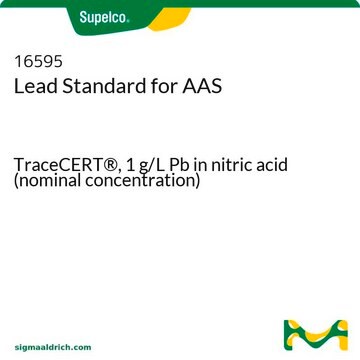50484
Methylene Blue solution
suitable for microbiology
Synonym(s):
Ehrlich’s reagent III, Loeffler’s Methylene Blue
About This Item
Recommended Products
shelf life
limited shelf life, expiry date on the label
concentration
0.5% in H2O (0.5 g/100 mL)
technique(s)
microbe id | staining: suitable
application(s)
microbiology
suitability
Bacillus spp.
Corynebacterium spp.
bacteria
SMILES string
[Cl-].CN(C)c1ccc2N=C3C=C\C(C=C3Sc2c1)=[N+](/C)C
InChI
1S/C16H18N3S.ClH/c1-18(2)11-5-7-13-15(9-11)20-16-10-12(19(3)4)6-8-14(16)17-13;/h5-10H,1-4H3;1H/q+1;/p-1
InChI key
CXKWCBBOMKCUKX-UHFFFAOYSA-M
Looking for similar products? Visit Product Comparison Guide
General description
Components
methylene blue 0.5 g
distilled water 100 ml
replaced by
Storage Class Code
12 - Non Combustible Liquids
WGK
WGK 2
Flash Point(F)
Not applicable
Flash Point(C)
Not applicable
Personal Protective Equipment
Choose from one of the most recent versions:
Already Own This Product?
Find documentation for the products that you have recently purchased in the Document Library.
Customers Also Viewed
Our team of scientists has experience in all areas of research including Life Science, Material Science, Chemical Synthesis, Chromatography, Analytical and many others.
Contact Technical Service



